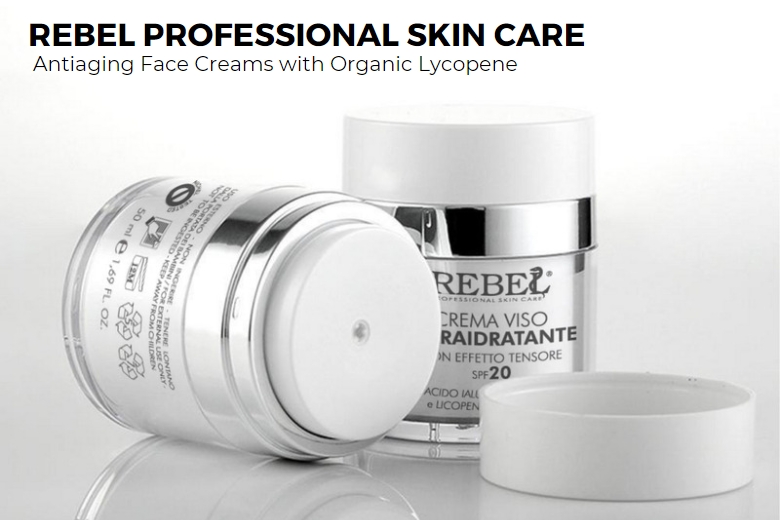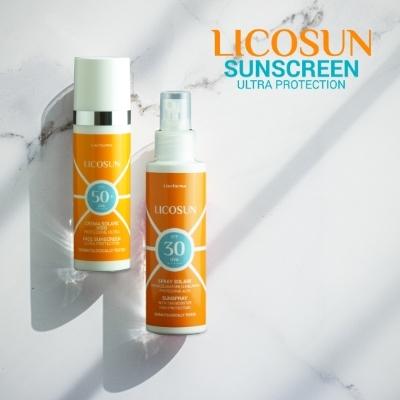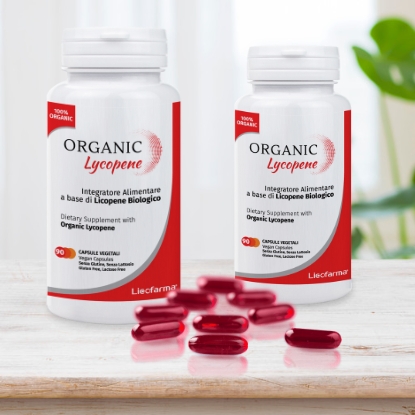Cosmetic Applications of Lycopene
Due to its high antioxidant power Lycopene is an active ingredient that raises a lot of interest in dermatology and cosmetics as well, representing a key nutrient for skin health.
Indeed, the skin, like all other tissues, suffers damage caused by free radicals, which are considered to be among the main factors responsible for skin aging. Lycopene, by neutralizing the action of free radicals, represents a true natural anti-aging, ingredient, so much so that a study conducted in 2008 by the Department of Dermatology at the University of Berlin showed a close correlation between high levels of lycopene in plasma and low levels of skin roughness.
Anti-collagenase and Anti-elastase Activities of Lycopene
Lycopene acts as a natural anti-aging agent against the obvious signs of skin aging, i.e., wrinkles, laxity, dermal thickening, and dull complexion, by protecting and promoting the production of collagen and elastin, two of the most important proteins found in the skin's extracellular matrix.
Practically speaking, there are enzymes in the extracellular matrix of skin tissue, called metalloproteases, which are very important as they participate in tissue regeneration and repair processes. Specifically, they are responsible for the breakdown of proteins found in the extracellular matrix of the skin, mainly collagen and elastin, which provide tone, elasticity, and hydration to the skin. When the activity of metalloproteases is higher than what is considered physiological, there is an imbalance between the synthesis of collagen and elastin, which decreases, and their degradation, which increases. The main consequence of this imbalance is an acceleration of the skin aging process with the appearance of typical signs, including wrinkles, loss of elasticity and tone, skin thickening and sagging.
One of the main causes that induces an increased production of these enzymes is precisely the excess of free radicals that concentrate locally in the skin tissue. Lycopene, due to its ability to neutralize excess free radicals, is able to inhibit the proliferation of metalloproteases, promoting the production of collagen and elastin and restoring the balance between the synthesis and degradation of these two proteins that are essential to skin health.
Exclusive line of Lycopene-based anti-aging cosmetics developed by our researchers and cosmetologists.
Lycopene and Photoprotection
Another important property of Lycopene is to reduce skin sensitization to UVA and UVB radiation exposure, reducing the risk of erythema and sunburn and protecting the skin from photoaging. Continued exposure to sunlight results in increased production of free radicals in the skin. This excess of of free radicals increases the levels of oxidative stress responsible for so-called photoexposure damage, i.e., premature activation or acceleration of the physiological skin aging process (appearance of wrinkles, laxity, thickening of the dermis) and appearance of dark spots.
Lycopene penetrating into the dermis exerts its photoprotective action, that is, it neutralizes excess free radicals by increasing the skin's antioxidant defenses and thereby reducing photoaging damage.
Licofarma and the Commitment Against Photoaging Damage
Our researchers, after years of study and research into the damage that oxidative stress creates in the skin, have developed a line of specific products based on Organic Lycopene and other synergistic active ingredients. A line of sunscreens designed to protect every part of the body, including the face, lips and hair, from the harmful action of UVA and UVB rays.
Discover all the products in the Licosun and their features.
Other Lycopene Applications for Skin Health
Lycopene can also be useful in sensitive and inflamed skin as it helps reduce redness and irritation. In synergy with other active ingredients and functional substances, it can also actively act against common skin imperfections such as cellulite and stretch marks.
Lycopene and Skin Bioavailability: the Lycocerasomes
One of the main problems with the use of Lycopene topically is the fact that it tends to oxidize easily as soon as it is reached by UV rays without actually being able to penetrate deep into the dermis, precisely where its antiradical activity is most important. To overcome this problem of vehiculation, Licofarma researchers have developed Lycocerasomes, meaning that they have encapsulated Organic Lycopene within plant (wheat) ceramides that can protect the active ingredient from oxidation and release it slowly, thus allowing it to penetrate deep into the layers of the skin tissue while maintaining its properties unchanged and carrying out its action where it is needed.





